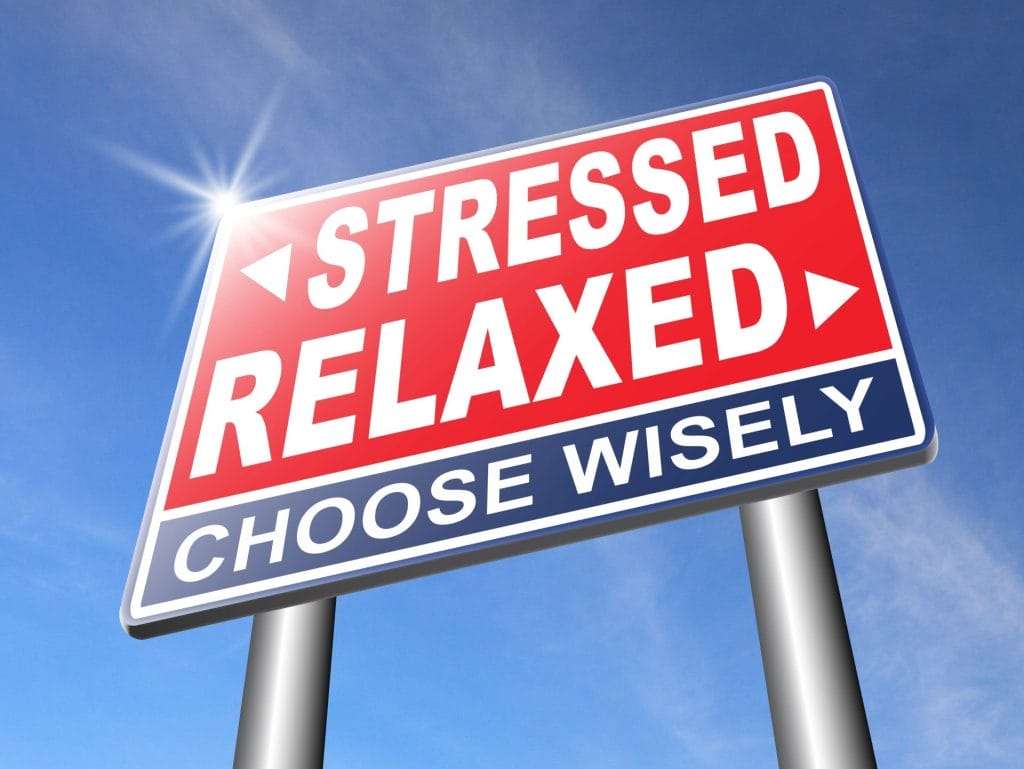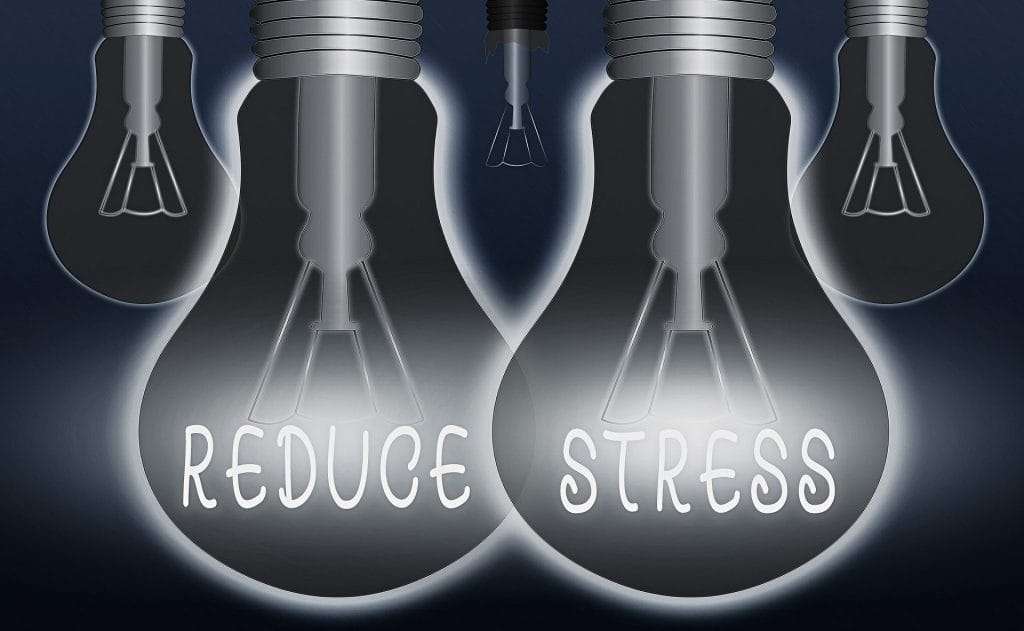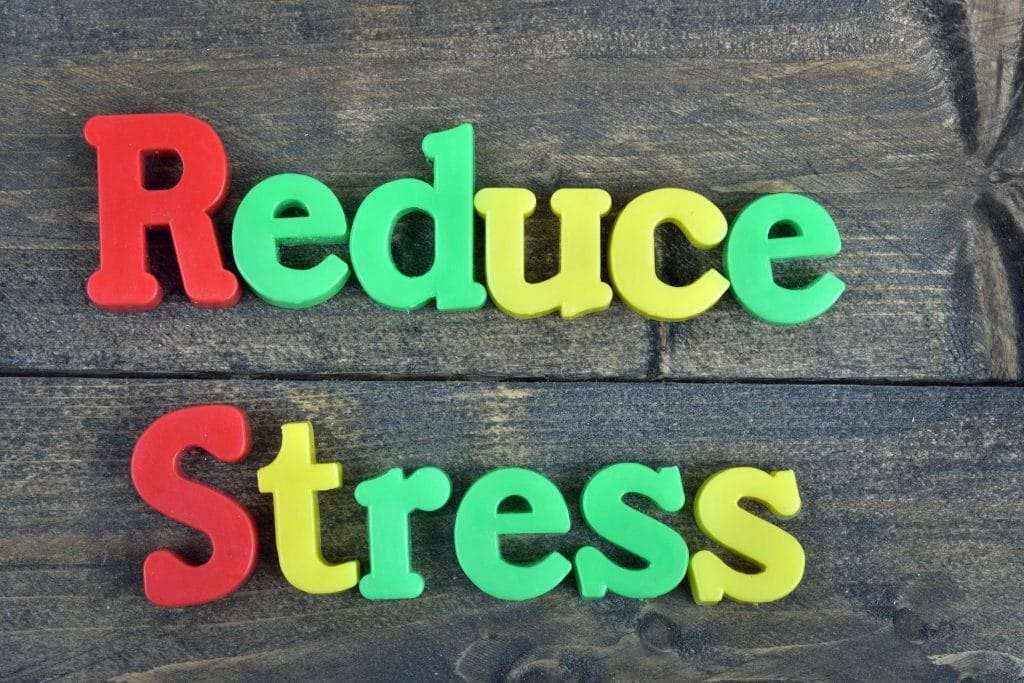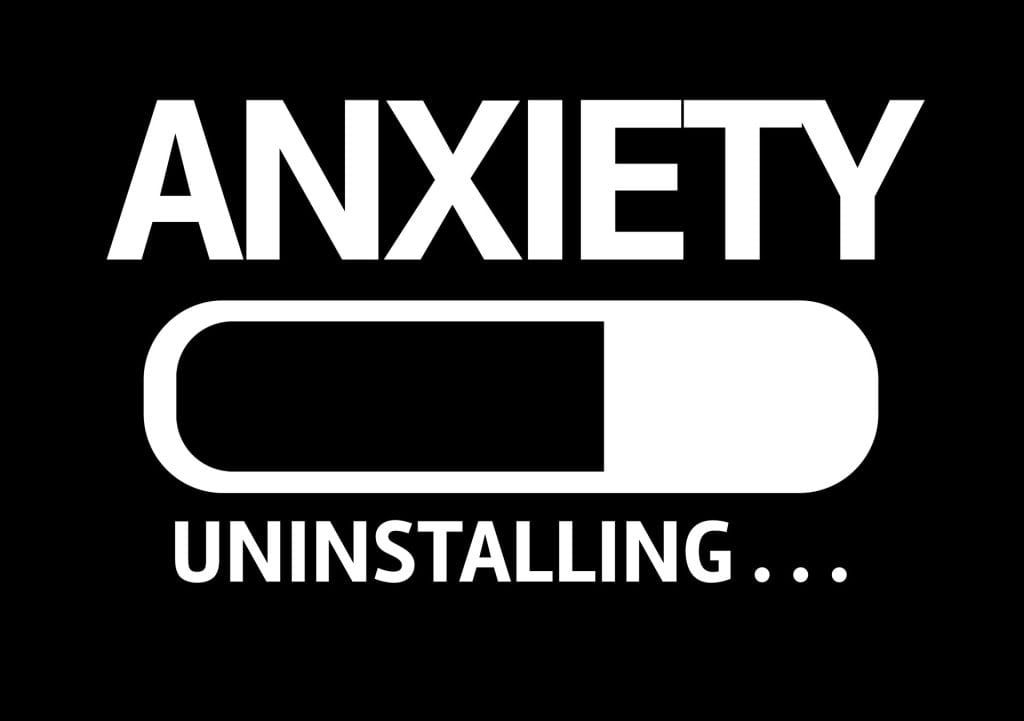Stress and anxiety have become unwelcome companions for millions of people worldwide. While modern life brings numerous conveniences, it also presents unprecedented challenges that can overwhelm our mental and physical well-being. The search for effective, natural stress relief methods has intensified as more individuals seek alternatives to pharmaceutical interventions. At The Vitamin Shots, we understand the importance of holistic approaches to mental wellness, which is why we’re exploring the most effective natural stress busters that can help you reclaim your peace of mind.
Chronic stress doesn’t just affect your mood, it impacts every aspect of your health, from your immune system to your cardiovascular health. The good news is that nature provides us with powerful tools to combat stress and anxiety without relying solely on medications. This comprehensive guide will explore evidence-based natural remedies, lifestyle modifications, and practical techniques that can significantly reduce stress levels and improve your overall quality of life.

Understanding Stress and Its Impact on Your Body
What Happens When You’re Stressed?
Stress triggers a complex cascade of physiological responses in your body. When you encounter a stressful situation, your hypothalamic-pituitary-adrenal (HPA) axis activates, releasing stress hormones like cortisol and adrenaline. While this response was evolutionarily designed to help us deal with immediate threats, chronic activation of this system can lead to serious health consequences.
Research shows that prolonged stress exposure can weaken your immune system, increase inflammation, disrupt sleep patterns, and contribute to various health conditions including heart disease, diabetes, and depression. Understanding these mechanisms is crucial for appreciating why natural stress management is so important for your overall well-being.
The Modern Stress Epidemic
Contemporary life presents unique stressors that our ancestors never faced. Digital overload, social media pressure, financial uncertainty, work-life imbalance, and constant connectivity create a perfect storm for chronic stress. Studies indicate that stress-related disorders have increased significantly over the past decade, making effective stress management more critical than ever.
Top Natural Stress Busters That Actually Work
1. Adaptogenic Herbs: Nature’s Stress Fighters
Adaptogenic herbs have been used for centuries in traditional medicine systems to help the body adapt to stress and maintain homeostasis. These remarkable plants work by modulating the HPA axis and supporting your body’s natural stress response.
Ashwagandha stands out as one of the most researched adaptogens for stress relief. Clinical studies demonstrate that ashwagandha supplementation can significantly reduce cortisol levels and improve stress-related symptoms. A randomized controlled trial found that participants taking ashwagandha experienced a 27.9% reduction in serum cortisol levels compared to the placebo group.
Rhodiola rosea is another powerful adaptogen that has shown remarkable stress-reducing properties. This Arctic herb helps improve mental performance under stress and reduces fatigue. Research indicates that rhodiola can enhance stress tolerance and improve mood in individuals experiencing chronic stress.
Holy basil (Ocimum sanctum), also known as tulsi, offers potent stress-relieving benefits. Studies show that holy basil can help normalize cortisol levels and reduce anxiety symptoms. Its compounds, including eugenol and rosmarinic acid, contribute to its calming effects.
At The Vitamin Shots, we recognize the importance of high-quality adaptogenic supplements in supporting your body’s natural stress response.

2. Essential Oils and Aromatherapy
Aromatherapy harnesses the power of plant essences to promote relaxation and reduce stress. The olfactory system has direct connections to the limbic system in your brain, which processes emotions and memories, making scent a powerful tool for stress management.
Lavender essential oil is perhaps the most well-studied aromatherapy remedy for stress and anxiety. Multiple clinical trials have demonstrated lavender’s ability to reduce anxiety levels and improve sleep quality. One study found that inhaling lavender essential oil for 15 minutes significantly reduced cortisol levels in participants.
Bergamot oil contains compounds that can help regulate mood and reduce stress hormones. Research shows that bergamot aromatherapy can lower both psychological and physiological stress markers.
Chamomile oil offers gentle yet effective stress relief properties. Its compounds, particularly bisabolol and matricin, contribute to its calming effects on the nervous system.
3. Mind-Body Practices for Stress Reduction
Meditation and Mindfulness
Meditation represents one of the most scientifically validated approaches to stress reduction. Regular meditation practice can literally rewire your brain, increasing gray matter in areas associated with emotional regulation while reducing activity in the amygdala, the brain’s fear center.
Mindfulness-based stress reduction (MBSR) programs have shown remarkable results in clinical settings. Participants in MBSR programs typically experience significant reductions in anxiety, depression, and perceived stress levels.
Transcendental meditation involves the use of a personalized mantra to achieve a state of relaxed alertness. Studies indicate that regular practice can reduce cortisol levels and improve stress resilience.
Yoga and Tai Chi
These ancient practices combine physical movement with mindfulness, creating powerful stress-busting effects. Yoga has been shown to reduce cortisol levels, lower blood pressure, and improve mood. The combination of controlled breathing, physical postures, and meditation makes yoga a comprehensive stress management tool.
Tai chi, often described as “meditation in motion,” offers similar benefits. Research demonstrates that regular tai chi practice can reduce anxiety, improve sleep quality, and enhance overall well-being.
4. Nutritional Approaches to Stress Management
Your diet plays a crucial role in how your body responds to stress. Certain nutrients can either exacerbate or alleviate stress responses, making nutrition a powerful tool in your stress management arsenal.
Magnesium: The Relaxation Mineral
Magnesium deficiency is common in stressed individuals, and supplementation can significantly improve stress symptoms. This essential mineral helps regulate the nervous system and supports healthy cortisol levels. Foods rich in magnesium include dark leafy greens, nuts, seeds, and whole grains.
Omega-3 Fatty Acids
These essential fats are crucial for brain health and stress resilience. Studies show that omega-3 supplementation can reduce cortisol and adrenaline levels during stressful situations. Fatty fish, walnuts, and flaxseeds are excellent sources of omega-3s.
B-Complex Vitamins
B vitamins play vital roles in neurotransmitter production and stress hormone regulation. Chronic stress can deplete B vitamin stores, making supplementation beneficial for many individuals. The vitamin products available at The Vitamin Shots can help ensure you’re getting adequate B vitamins to support your stress response.
Antioxidant-Rich Foods
Stress increases oxidative damage in your body, making antioxidants crucial for stress management. Colorful fruits and vegetables, green tea, and dark chocolate provide powerful antioxidants that can help protect against stress-induced damage.
5. Herbal Teas for Natural Calm
Herbal teas offer a gentle, accessible way to incorporate stress-reducing compounds into your daily routine. The ritual of tea preparation and consumption itself can be meditative and calming.
Chamomile tea contains apigenin, a compound that binds to brain receptors to promote sleepiness and reduce anxiety. Clinical studies have shown that chamomile supplementation can significantly reduce anxiety symptoms.
Passionflower tea has been traditionally used for anxiety and insomnia. Research indicates that passionflower can be as effective as some pharmaceutical anxiety medications without the associated side effects.
Lemon balm tea offers mild sedative effects and can help reduce stress-related symptoms. Studies show that lemon balm can improve mood and cognitive performance under stress.
Glam Dust
Radiant Skin – Luscious Hair – Pristine Nails
Vitamin Shots
The ultimate brain and body supplements
Vitamin Sprinkles
The ultimate brain and body supplements
Lifestyle Modifications for Long-Term Stress Management – Effective Solutions
Sleep Optimization
Quality sleep is fundamental to stress resilience. Chronic sleep deprivation elevates cortisol levels and impairs your ability to cope with daily stressors. Establishing a consistent sleep schedule, creating a relaxing bedtime routine, and optimizing your sleep environment are crucial steps in stress management.
Regular Physical Exercise
Exercise is one of the most effective natural stress relievers available. Physical activity helps metabolize stress hormones and releases endorphins, your body’s natural mood elevators. Both aerobic exercise and strength training have been shown to reduce stress and anxiety levels.

Digital Detox and Boundaries
Constant connectivity and information overload contribute significantly to modern stress levels. Implementing regular digital detoxes, setting boundaries around technology use, and creating tech-free zones in your home can help reduce stress and improve mental clarity.
Social Connection and Support
Strong social relationships are protective against stress and its harmful effects. Spending time with loved ones, participating in community activities, and maintaining meaningful connections can significantly buffer stress responses.
Breathing Techniques for Immediate Stress Relief
4-7-8 Breathing Technique
This simple yet powerful breathing pattern can quickly activate your parasympathetic nervous system, promoting relaxation. Inhale for 4 counts, hold for 7 counts, and exhale for 8 counts. This technique can be particularly effective during acute stress situations.
Box Breathing
Used by military personnel and first responders, box breathing involves inhaling, holding, exhaling, and holding again, each for equal counts (typically 4). This technique helps regulate the nervous system and can be practiced anywhere.
Diaphragmatic Breathing
Deep belly breathing stimulates the vagus nerve, which signals your body to relax. This technique involves breathing deeply into your diaphragm rather than shallow chest breathing, promoting a calm state.
Effective strategies to reduce stress and anxiety have become increasingly important in modern healthcare, with both conventional and integrative approaches offering valuable solutions for managing these prevalent mental health challenges. The complex relationship between stress and anxiety requires a multifaceted remedy that addresses both psychological and physiological aspects of these conditions, utilizing evidence-based methods to reduce anxiety while supporting overall well-being. Modern stress management approaches recognize that elevated stress levels can significantly impact both mental and physical health, making it essential to ease stress through comprehensive interventions that target anxiety disorders and related conditions.
Mindfulness practices have emerged as one of the most effective evidence-based approaches for managing stress and reducing anxiety symptoms, with systematic review and meta-analysis studies consistently demonstrating their efficacy in treating various forms of anxiety and depression. The integrative nature of mindfulness-based interventions helps regulate cortisol production and supports the body’s natural stress response, making these practices particularly valuable for individuals dealing with generalized anxiety disorder and chronic stress conditions. Cognitive behavioral therapy remains a cornerstone treatment for anxiety, often combined with mindfulness techniques to create comprehensive approaches that help with anxiety while addressing the underlying patterns that contribute to elevated stress levels.
Physical activity serves as a powerful stress reliever and anxiety treatment, with research showing that regular exercise can significantly lower cortisol levels while promoting the production of mood-regulating neurotransmitters. The practice of journaling provides an accessible tool for stress reduction, allowing individuals to process their thoughts and emotions while developing better coping strategies to deal with stress and anxiety. Complementary approaches such as acupuncture have gained recognition in integrative health settings, offering alternative methods to relieve stress and support overall mental health, particularly for older adults who may benefit from gentler interventions.
Deep breathing techniques represent some of the most immediate stress busters available, providing rapid relief from anxiety symptoms by activating the parasympathetic nervous system and naturally reducing cortisol production. These relaxation techniques, often incorporated into meditation and mindfulness-based programs, help individuals cope with stress while building long-term resilience against anxiety and depression. The systematic review of breathing techniques shows consistent benefits for both acute stress management and chronic anxiety conditions, making these practices valuable tools for anyone seeking to beat stress and improve their overall mental health.
Natural remedies for anxiety, including herbal supplements and targeted nutritional interventions, offer additional support for those looking to treat anxiety through integrative approaches. B vitamins and magnesium play crucial roles in neurotransmitter function and stress response regulation, with deficiencies in these nutrients often contributing to increased anxiety symptoms and reduced ability to manage stress effectively. Herbal remedies have been used for centuries to relieve anxiety and ease stress and anxiety, with modern research providing scientific validation for many traditional approaches to mental health support.
The importance of lifestyle changes cannot be overstated when developing effective strategies to help manage anxiety and reduce overall stress levels. Simple modifications such as creating a structured to-do list, implementing regular sleep schedules, and making dietary and lifestyle adjustments can provide significant benefits for mental health. Health tips from mental health professionals consistently emphasize the value of spending time in nature, which research shows can help reduce stress while supporting both psychological and physiological well-being. These evidence-based approaches, supported by ongoing research on safety and effectiveness, provide individuals with practical tools to improve their quality of life while addressing the symptoms of anxiety and chronic stress.
Talk therapy, including various forms of psychotherapy, remains an essential component of comprehensive anxiety treatment, often combined with other interventions to create personalized approaches that address individual needs and circumstances. The recognition that good stress can be beneficial while chronic stress becomes problematic has led to more nuanced approaches to stress management that focus on building resilience rather than simply eliminating all stressors. Health information from reputable sources consistently emphasizes that effective stress management requires a combination of approaches, including anxiety and stress reduction techniques, lifestyle modifications, and professional support when needed.
Modern integrative health approaches recognize that mental health problems, including anxiety, often require multidisciplinary treatment that combines conventional medical care with complementary therapies and lifestyle interventions. The growing body of research on magnesium and B vitamins demonstrates their importance in supporting mental health, with these nutrients playing crucial roles in neurotransmitter synthesis and stress response regulation. For individuals seeking to help reduce stress and manage anxiety symptoms, the combination of evidence-based therapies, nutritional support, and lifestyle modifications offers the most comprehensive approach to achieving lasting improvements in mental and physical health outcomes.
Glam Dust
Radiant Skin – Luscious Hair – Pristine Nails
Vitamin Shots
The ultimate brain and body supplements
Vitamin Sprinkles
The ultimate brain and body supplements
Creating Your Personal Stress Management Plan
Developing an effective stress management strategy requires a personalized approach that considers your lifestyle, preferences, and specific stress triggers. Start by identifying your primary stressors and choosing 2-3 natural stress busters that resonate with you.
Begin with small, manageable changes rather than attempting to overhaul your entire lifestyle at once. Consistency is more important than perfection when it comes to stress management. Track your progress and adjust your approach as needed.
Consider incorporating supplements from reputable sources like The Vitamin Shots to support your natural stress management efforts. High-quality supplements can fill nutritional gaps and provide targeted support for stress resilience.

When to Seek Professional Help
While natural stress busters can be highly effective, it’s important to recognize when professional help may be needed. If you experience persistent symptoms that interfere with daily functioning, consider consulting with a healthcare provider or mental health professional.
Symptoms that warrant professional attention include:
- Persistent feelings of overwhelm or hopelessness
- Difficulty sleeping or eating
- Physical symptoms like chest pain or rapid heartbeat
- Substance use as a coping mechanism
- Thoughts of self-harm
The Science Behind Natural Stress Relief
Recent research in neuroscience and psychology continues to validate the effectiveness of natural stress management techniques. Neuroplasticity research shows that practices like meditation can literally reshape brain structure, improving emotional regulation and stress resilience.
Epigenetic studies reveal that lifestyle factors, including stress management practices, can influence gene expression related to stress response and inflammation. This research underscores the profound impact that natural interventions can have on your health at the cellular level.

Integrating Natural Stress Busters into Daily Life
Success in stress management comes from making these practices part of your daily routine rather than using them only during crisis situations. Consider starting your day with a few minutes of meditation, incorporating adaptogenic herbs into your morning routine, or ending your day with a calming herbal tea.
The key is to find what works for you and commit to consistency. Even small changes, when practiced regularly, can lead to significant improvements in stress levels and overall well-being.
Remember that stress management is not about eliminating all stress from your life—that’s neither possible nor desirable. Instead, it’s about building resilience and developing healthy coping mechanisms that allow you to navigate life’s challenges with greater ease and grace.
At The Vitamin Shots, we’re committed to supporting your journey toward better health and stress management through high-quality nutritional supplements and evidence-based wellness information.
Conclusion
Natural stress busters offer powerful, accessible solutions for managing stress and anxiety without relying solely on pharmaceutical interventions. From adaptogenic herbs and essential oils to meditation and nutritional support, these evidence-based approaches can significantly improve your quality of life and long-term health outcomes.
The journey to better stress management is personal and ongoing. By incorporating these natural remedies into your daily routine and maintaining consistency in your practice, you can build resilience against life’s inevitable stressors while supporting your overall health and well-being.
Remember that effective stress management is an investment in your future self. The techniques and remedies outlined in this guide, combined with high-quality supplements from trusted sources like The Vitamin Shots, can help you create a comprehensive approach to stress relief that serves you for years to come.
Frequently Asked Questions (FAQs)
1. How long does it take for natural stress busters to show results?
The timeline for experiencing benefits from natural stress remedies varies depending on the specific intervention and individual factors. Some techniques, like breathing exercises and aromatherapy, can provide immediate relief within minutes. However, for more substantial and lasting changes, consistency is key. Adaptogenic herbs typically show effects within 2-4 weeks of regular use, while meditation and yoga practices may begin showing benefits after 2-3 weeks of consistent practice. For optimal results, commit to your chosen stress management techniques for at least 8-12 weeks while monitoring your progress. Individual responses may vary based on stress levels, overall health, and adherence to the chosen methods.
2. Can I combine multiple natural stress relief methods safely?
Yes, most natural stress relief methods can be safely combined and often work synergistically to provide enhanced benefits. For example, you can practice meditation while using aromatherapy, or combine adaptogenic herbs with regular exercise and proper nutrition. However, when combining herbal supplements or essential oils, it’s important to research potential interactions and consult with a healthcare provider, especially if you’re taking medications or have underlying health conditions. Start with one or two methods and gradually incorporate additional techniques as you become comfortable with your routine. This approach helps you identify which combinations work best for your individual needs.
3. Are there any side effects associated with natural stress remedies?
While natural stress remedies are generally safer than pharmaceutical options, they can still cause side effects in some individuals. Herbal supplements may interact with medications or cause allergic reactions in sensitive people. Essential oils can cause skin irritation if not properly diluted, and some aromatherapy oils may trigger headaches in certain individuals. Adaptogenic herbs like ashwagandha may cause drowsiness in some people, while others might experience mild digestive upset. Always start with small doses when trying new supplements, perform patch tests for topical applications, and consult healthcare providers before beginning any new regimen, especially if you have pre-existing conditions or take medications.
4. Which natural stress buster is most effective for severe anxiety?
For severe anxiety, a multi-modal approach combining several evidence-based natural methods typically provides the best results. Research suggests that regular meditation practice, particularly mindfulness-based stress reduction (MBSR), shows significant efficacy for severe anxiety symptoms. Adaptogenic herbs like ashwagandha have strong clinical evidence for reducing anxiety and cortisol levels. However, severe anxiety often requires professional guidance and may benefit from combining natural approaches with conventional treatment. Consider working with a healthcare provider who understands both natural and conventional approaches to anxiety management. The most effective strategy is usually individualized based on your specific symptoms, lifestyle, and overall health status.
5. How do I choose quality supplements for stress management from The Vitamin Shots?
When selecting stress management supplements from The Vitamin Shots, look for products that provide detailed ingredient information, including standardized extract concentrations for herbal supplements. Choose products that are third-party tested for purity and potency, and verify that they’re free from unnecessary fillers and artificial additives. For adaptogenic herbs, look for standardized extracts that specify the active compounds (such as withanolides in ashwagandha). Consider your individual needs: magnesium glycinate for better absorption, omega-3s with high EPA/DHA content, and B-complex vitamins in their active forms. Start with single-ingredient supplements to assess tolerance before trying combination formulas, and always read labels carefully to ensure appropriate dosing for your stress management goals.
References
Chandrasekhar, K., Kapoor, J., & Anishetty, S. (2012). A prospective, randomized double-blind, placebo-controlled study of safety and efficacy of a high-concentration full-spectrum extract of ashwagandha root in reducing stress and anxiety in adults. Indian Journal of Medical Research, 136(3), 344-349.
Darbinyan, V., Kteyan, A., Panossian, A., Gabrielian, E., Wikman, G., & Wagner, H. (2000). Rhodiola rosea in stress induced fatigue—a double blind cross-over study of a standardized extract SHR-5 with a repeated low-dose regimen on the mental performance of healthy physicians during night duty. Phytomedicine, 7(5), 365-371.
Goyal, M., Singh, S., Sibinga, E. M., Gould, N. F., Rowland-Seymour, A., Sharma, R., … & Haythornthwaite, J. A. (2014). Meditation programs for psychological stress and well-being: a systematic review and meta-analysis. JAMA Internal Medicine, 174(3), 357-368.
Kasper, S., Gastpar, M., Müller, W. E., Volz, H. P., Möller, H. J., Schläfke, S., & Dienel, A. (2010). Silexan, an orally administered Lavandula oil preparation, is effective in the treatment of ‘subsyndromal’ anxiety disorder: a randomized, double-blind, placebo controlled trial. International Clinical Psychopharmacology, 25(5), 277-287.
Lakhan, S. E., & Vieira, K. F. (2010). Nutritional and herbal supplements for anxiety and anxiety-related disorders: systematic review. Nutrition Journal, 9(1), 42.
Lopresti, A. L., & Drummond, P. D. (2017). Saffron (Crocus sativus) for depression: a systematic review of clinical studies and examination of underlying antidepressant mechanisms of action. Human Psychopharmacology: Clinical and Experimental, 32(3), e2607.
Mao, J. J., Xie, S. X., Keefe, J. R., Soeller, I., Li, Q. S., & Amsterdam, J. D. (2016). Long-term chamomile (Matricaria chamomilla L.) treatment for generalized anxiety disorder: A randomized clinical trial. Phytomedicine, 23(14), 1735-1742.
Nehlig, A. (2013). The neuroprotective effects of cocoa flavanol and its influence on cognitive performance. British Journal of Clinical Pharmacology, 75(3), 716-727.
Pratte, M. A., Nanavati, K. B., Young, V., & Morley, C. P. (2014). An alternative treatment for anxiety: a systematic review of human trial results reported for the Ayurvedic herb ashwagandha (Withania somnifera). Journal of Alternative and Complementary Medicine, 20(12), 901-908.
Sarris, J., McIntyre, E., & Camfield, D. A. (2013). Plant-based medicines for anxiety disorders, part 2: a review of clinical studies with supporting preclinical evidence. CNS Drugs, 27(4), 301-319.
Scholey, A., Gibbs, A., Neale, C., Perry, N., Ossoukhova, A., Bilog, V., … & Buchwald-Werner, S. (2014). Anti-stress effects of lemon balm-containing foods. Nutrients, 6(11), 4805-4821.
Steenbergen, L., Sellaro, R., Stock, A. K., Beste, C., & Colzato, L. S. (2015). γ-Aminobutyric acid (GABA) administration improves action selection processes: a randomised controlled trial. Scientific Reports, 5, 12770.
Watanabe, E., Kuchta, K., Kimura, M., Rauwald, H. W., Kamei, T., & Imanishi, J. (2015). Effects of bergamot (Citrus bergamia (Risso) Wright & Arn.) essential oil aromatherapy on mood states, parasympathetic nervous system activity, and salivary cortisol levels in 41 healthy females. Forschende Komplementärmedizin, 22(1), 43-49.

.png)
